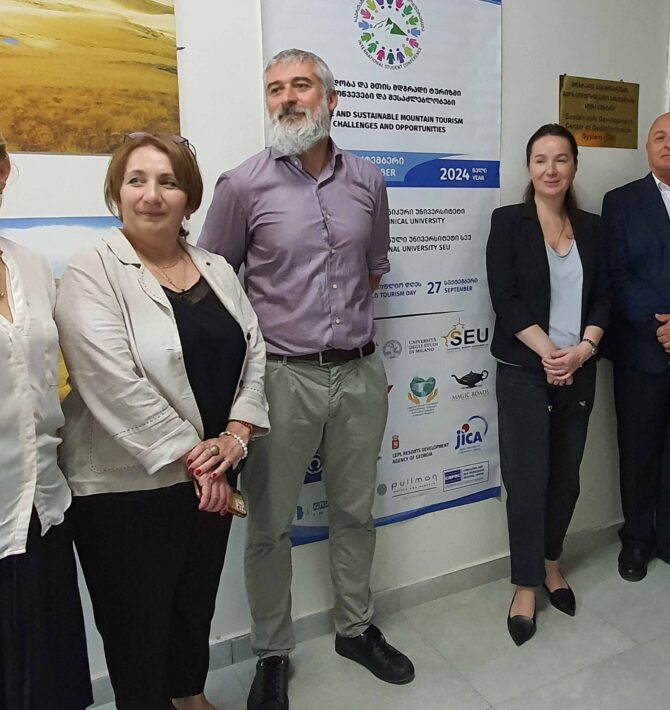GTU Collaborates with Milan University Research Center to Create a Master’s Program in Sustainable Development of Mountainous Areas
On September 8, 2025, the Executive Director of the I2Q Project, along with representatives from the Competitive Innovation Fund (CIF), visited the Georgian Technical University (GTU) to learn about the progress of a project funded through a grant competition.
The project aims to develop a master’s educational program in collaboration with the University of Milan Research Center (UNIMONT) focused on the Sustainable Development of Mountainous Areas. This English-language, transdisciplinary master’s degree program will integrate the latest trends and innovative teaching methods in the field. The program seeks to train professionals who can enhance, develop, and manage mountain areas sustainably through innovative approaches and a systemic perspective. It will also strengthen the educational and scientific capabilities of GTU’s Faculty of Sustainable Mountain Development.
During the visit, the Dean of the Faculty of Sustainable Mountain Development provided a tour of the faculty’s facilities and the technical equipment acquired through the project funding. The representatives from the I2Q project also met with delegates from the UNIMONT Research Center, who are currently conducting intensive educational and research training for the faculty’s academic staff. This training is vital for finalizing the master’s program. The course on designing the master’s educational program, titled “Sustainable Development of Mountain Areas,” is led by distinguished Italian researchers – Professor Stefano Corsi, Dr. Annamaria Giorgi, and Dr. Riccardo Gagetti.
The training course covers a variety of topics, including “The Art and Practice of Syllabus Design,” which discusses methodologies for creating modern curricula and integrating various disciplines.
This master’s program will equip future generations with interdisciplinary knowledge that combines environmental, social, economic, and engineering components. Implementing this program will foster a new generation of specialists equipped to develop strategies for the sustainable development of mountainous regions and to apply innovative solutions in agriculture, tourism, infrastructure, and ecological management.







